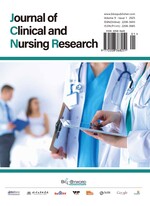Abstract
Objective: To analyze the effect of optimizing the emergency nursing process on the nursing effect of patients with acute upper gastrointestinal bleeding (AUGB) in the emergency department. Methods: 100 cases (Group A) were randomly selected from AUGB patients who had undergone the routine emergency care process in the emergency department from January 2022 to December 2022, and 100 cases (Group B) were randomly selected from AUGB patients who had undergone the optimized emergency care process in the emergency department from January 2023 to December 2023. The nursing effects of the two groups were compared. Results: clinical indicators that include the emergency response time, time to open the infusion channel, time from diagnosis to specialty treatment, hospitalization time, resuscitation success rate, rebleeding rate, nursing satisfaction score, post-care SAS score, and SF-36 score in Group B were better than those in Group A (P < 0.05). Conclusion: Optimization of the emergency care process for AUGB patients in the emergency department can improve the efficiency and success rate of resuscitation, reduce the risk of rebleeding, improve the mood and quality of life of patients, and make the patients more satisfied with the nursing service.
References
Li XQ, Chen XY, Wang XL, et al., 2022, Analysis of Risk Factors for Severity of Condition in Patients with Dangerous Upper Gastrointestinal Bleeding and Construction of Early Warning Assessment Model. Chinese Journal of Emergency Medicine, 31(4): 539–543.
Yang XL, Cai FJ, Wang QZ, et al., 2023, Impact of Endoscopy Timing on Clinical Outcomes in Patients with Acute Non-variceal Upper Gastrointestinal Bleeding. Journal of Clinical Emergency Medicine, 24(3): 149–154 + 159.
Xu Y, Zhou GP, 2023, Research on Emergency Nursing Interventions and Implementation Value of Patients with Upper Gastrointestinal Bleeding. Chinese and Foreign Medical Treatment, 42(30): 121–124 + 141.
Wang X, Bi HJ, Zhu QQ, 2022, Application Effect of Graded Emergency Care Combined with Psychological Care in the Care of Patients with Acute Upper Gastrointestinal Bleeding. Health Care Medicine Research and Practice, 19(2): 109–111.
Wu XF, Wang HY, Sheng YP, 2022, Effects of Emergency Nursing Intervention on Psychological Status and Nutritional Indexes of Patients with Tumor Combined with Upper Gastrointestinal Bleeding. China Cancer Clinics and Rehabilitation, 29(1): 102–105.
Tang SJ, Dong B, Liang F, 2020, Optimization of Emergency Nursing Process in the Treatment of Geriatric Oncology Combined with Acute Upper Gastrointestinal Bleeding. Geriatrics and Health Care, 26(6): 1069–1072.
Xu M, Wu T, 2023, Enhancement of Modular Nursing Intervention in the Effect of Emergency Nursing Care for Patients with Acute Upper Gastrointestinal Bleeding. Guizhou Medicine, 47(6): 1002–1003.
Luo Q, Zhou W, Xie FG, et al., 2023, Evaluation of the Effect of Construction of Fast Channel for Emergency Treatment of Dangerous Upper Gastrointestinal Bleeding. Journal of Clinical Emergency Medicine, 24(2): 73–77.
Ma WL, Zhang Y, Wang L, 2023, Application Effect of Optimizing Emergency Nursing Process Combined with Staged Nursing Intervention in Patients with Acute Cerebral Infarction. Journal of Naval Medicine, 2023(10): 1075–1080.
Lin CL, Liao M, 2023, Analysis of the Impact of Graded Emergency Care on Improving the Prognostic Quality of Patients with Acute Upper Gastrointestinal Bleeding. Heilongjiang Traditional Chinese Medicine, 52(3): 231–233.
Deng Y, Gou WF, Liu Q, et al., 2023, Application Effect of Emergency Treatment Channel on the Rescue of Elderly Patients with Acute Upper Gastrointestinal Bleeding. Modern Gastroenterology and Interventional Diagnosis and Treatment, 28(9): 1145–1149.
Ji GX, 2023, Observation on the Effect of Emergency Nursing on Patients with Acute Upper Gastrointestinal Bleeding Combined with Tumor. Marriage and Health, 29(9): 154–156.
